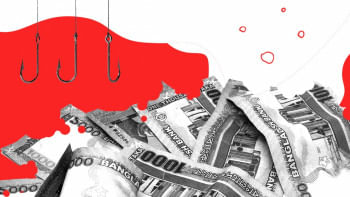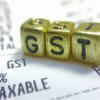A stronger, fairer tax system is the need of the hour

Bangladesh has persistently lagged behind regional peers and in global standards in terms of the tax-GDP ratio. Indeed, the country's tax-GDP ratio remains among the lowest in the region, with only marginal improvement over the past decade. According to a recent OECD report, Bangladesh's tax-GDP ratio was 7.2 percent in 2023, which was below the Asia-Pacific average of 19.5 percent. In FY2024, the ratio was 7.38 percent.
Understandably, a low tax-GDP ratio has several implications for the country's economic growth and social progress. First, it limits the government's fiscal space to invest in infrastructure, social services, climate resilience, and long-term development priorities, which has repercussions in various forms. Employment generation has been low due to low investment. Limited spending for social safety nets and climate resilience measures increases vulnerability of the poor and low-income households.
Second, it exacerbates inequalities in the tax system. When a significant number of high-income individuals and profitable companies evade taxes, the burden falls disproportionately on lower-income groups. The government relies on indirect taxes, such as value-added tax (VAT), which are paid at the same rate by everyone, irrespective of their income. Since VAT is applied on consumption, poor households spend a relatively higher share of their income on VAT compared to the higher income groups as they spend a larger share of their income on basic needs.
Third, Bangladesh's access to trade-related incentives and subsidies will diminish following its graduation from the Least Developed Country (LDC) category in November 2026. This will further constrain revenue sources in the country. Several studies have indicated that countries with low tax compliance often face compounded fiscal challenges during structural transitions, including the cessation of preferential trade benefits.
To make revenue mobilisation more efficient and improve the government's capacity to fund public services and investment, some measures are critically important. First, automation and digitisation of tax administration can enhance transparency, reduce harassment by tax officials, and make compliance easier. Adopting a comprehensive electronic tax system that integrates filing, payment, and tracking processes will attract more taxpayers. Such a system can also facilitate cross-checking between the National Board of Revenue (NBR) and other agencies, such as the Bangladesh Bank and the customs directorate. This will minimise avenues for underreporting and evasion.
Second, simplifying the tax process is critical. Currently, the multiplicity of taxes, rebates, and sector-specific exemptions not only complicates compliance but also creates opportunities for selective evasion. Streamlined tax structures with clearly defined rates, reduced exemptions, and targeted incentives aligned with developmental priorities can simultaneously enhance revenue and promote investment. This is particularly important in the context of LDC graduation, as the removal of preferential access to the export markets must be faced with higher domestic revenue mobilisation efforts.
Third, broadening the tax base is essential. In Bangladesh, a substantial number of potential taxpayers remains outside the formal system, including high-income individuals, small-scale entrepreneurs, and emerging businesses in the digital economy. Evidence from many developing countries, such as India and Indonesia, demonstrates that integration of informal businesses into the formal tax system, coupled with supportive measures such as simplified tax regimes and incentives for compliance, has helped enhance revenue collection. NBR should conduct targeted awareness campaigns, incentives for voluntary disclosure, and periodic compliance audits to encourage businesses and individuals to participate in the formal tax system. Additionally, leveraging third-party information, such as financial institutions and utility payments, can assist the NBR in identifying unregistered taxpayers. Addressing corporate tax evasion is equally essential. NBR must focus on monitoring high-risk sectors such as banking, telecommunications, and large-scale manufacturing to detect and prevent sophisticated evasion techniques.
Another important task is to reduce informal incentives and tax exemptions that disproportionately benefit certain sectors. While these policies are often intended to stimulate investment, they have also led to substantial revenue leakage. For instance, the textile sector, a major contributor to the country's export earnings, enjoys multiple exemptions and rebates under existing policies. It is time to rationalise these incentives. These should be time-bound and coupled with productivity-oriented support for the genuine cause, so that they can maintain competitiveness while broadening the tax base. Similarly, exempting VAT on goods and services should be carefully calibrated to prevent misuse or leakage. In Bangladesh, there are many exemptions and special rates, which are often granted due to lobbying by powerful interest groups. As a result, the effective VAT base is limited. Hence the VAT system cannot capture the full revenue potential. A recent CPD study indicates that Bangladesh may have lost around Tk 188,081 crore in FY2023 due to such exemptions and evasion in the VAT system.
Administrative capacity remains a persistent bottleneck. The NBR is under-resourced, understaffed, and often criticised for inefficiency and corruption. Building a skilled, merit-based, and well-incentivised workforce within the tax administration is essential. Continuous training, technological upskilling, and clear career incentives would improve morale and reduce rent-seeking behaviour. Moreover, taxpayer services must be improved to encourage voluntary compliance. Lengthy bureaucratic procedures, harassment, and lack of grievance redress discourage honest taxpayers and breed distrust. Establishing taxpayer service centres, strengthening e-filing, and creating fair dispute resolution mechanisms would help restore confidence in the tax authority.
Improving taxpayers' trust and compliance is also critical. Behavioural economics suggests that taxpayers respond not only to enforcement but also to perceptions of fairness and efficiency in the tax system. Studies show that countries that invest in taxpayer services, education, and grievance redress mechanisms achieve higher compliance even without drastic increases in audit intensity. In Bangladesh, reports of harassment, delays, and opaque procedures discourage voluntary compliance. Establishing a transparent and responsive taxpayer service framework, including digital communication channels, prompt grievance resolution, and public awareness campaigns, can enhance trust and participation.
Transparent public consultations and parliamentary oversight in tax policy formulation can counterbalance vested interests. Citizens are more likely to accept tax obligations when they perceive that revenues are used efficiently for public goods and social development. Publishing reports on tax expenditure, project-specific revenue use, and outcomes can strengthen social accountability, trust, and legitimacy. Input from think tanks, professional bodies, and civil society should also be institutionalised to ensure that policy design is guided by fairness and efficiency rather than short-term expediency.
The role of political economy cannot be ignored when improving the tax system. Taxation in Bangladesh has long been influenced by vested interests that lobby for exemptions, tax holidays, and amnesties. These practices not only reduce revenue but also erode public trust in fairness. Tax amnesty has been used repeatedly, allowing individuals to legalise undeclared wealth with minimal penalty, thereby rewarding evaders and discouraging honest taxpayers. Moving forward, the government must commit to phasing out discretionary exemptions and amnesties. A uniform application of tax laws can enhance fairness and efficiency.
Bangladesh has already entered a phase where concessional foreign aid has begun to decline. At the same time, its development needs have intensified. This requires decisive action in making the tax system fairer, more efficient, and more progressive. Such a tax system is not just an economic imperative—it is the foundation of democratic governance.
Dr Fahmida Khatun is executive director at the Centre for Policy Dialogue (CPD).
Views expressed in this article are the author's own.
Follow The Daily Star Opinion on Facebook for the latest opinions, commentaries and analyses by experts and professionals. To contribute your article or letter to The Daily Star Opinion, see our guidelines for submission.

 For all latest news, follow The Daily Star's Google News channel.
For all latest news, follow The Daily Star's Google News channel. 













Comments